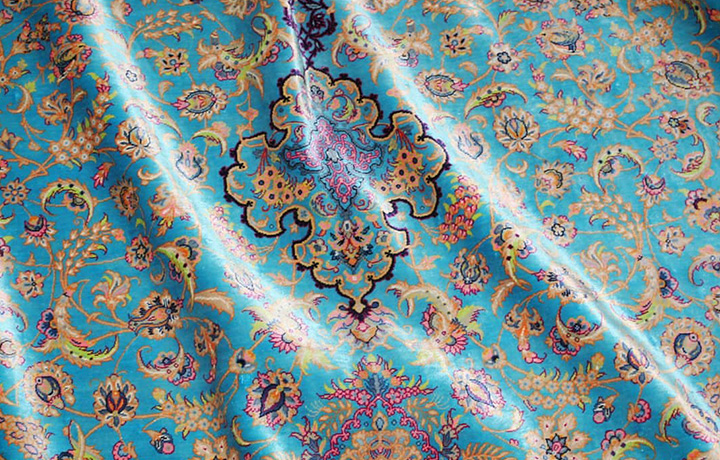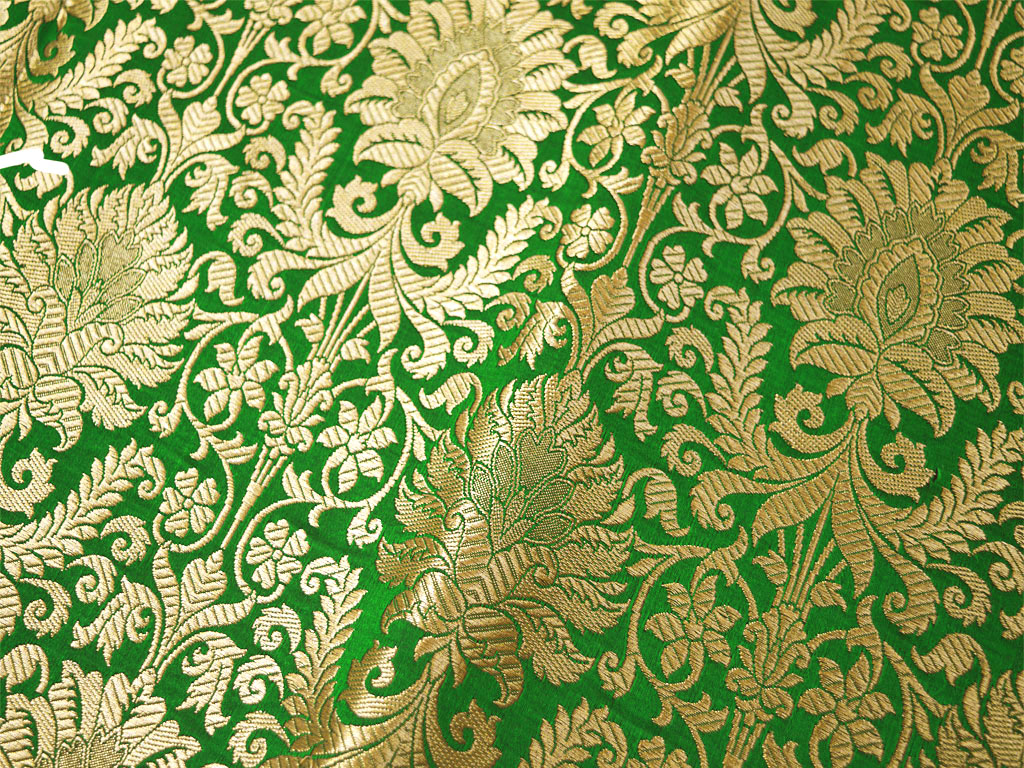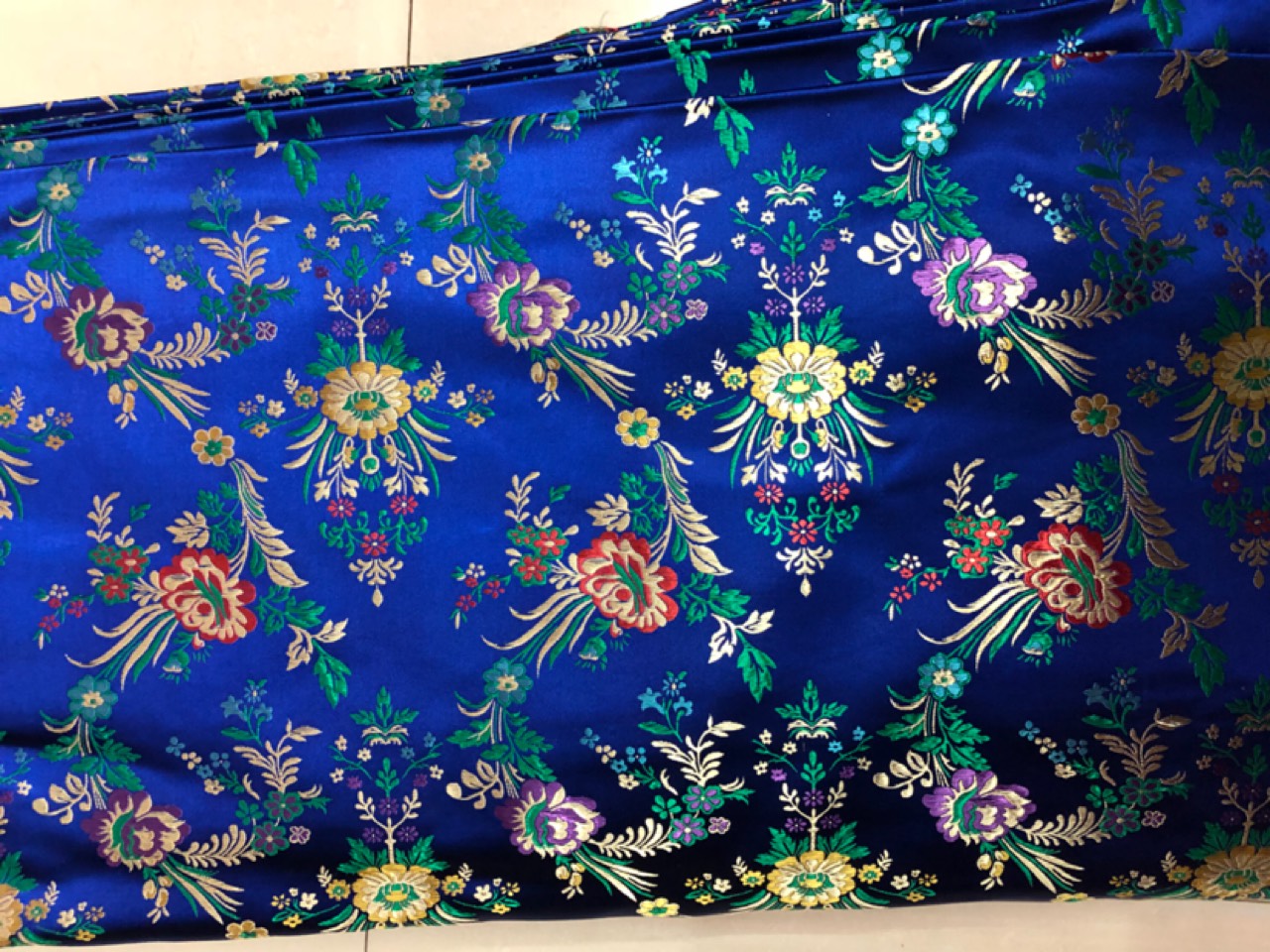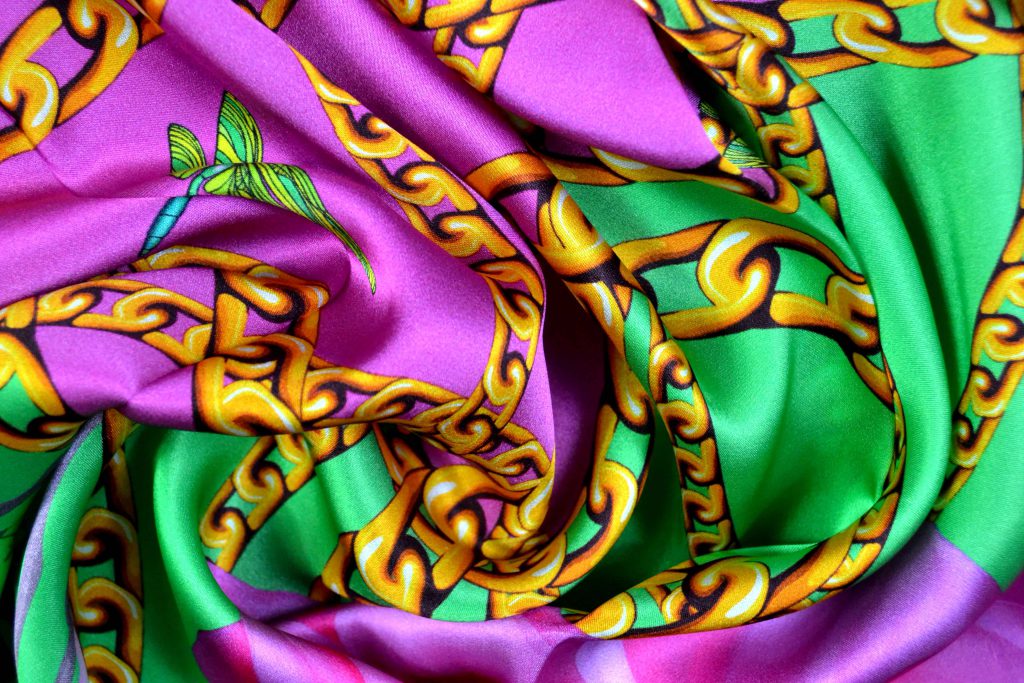When you are in charge of silk textile, often look for 100% silk fabric to buy it wholesale in different misusers by yard or meter, for instance. It has also been popular in different countries like Uk.
People tend to use it mostly in clothing as the threads of 100% silk are extremely absorbent, wearing silk clothing may keep you cool in the summer and warm in the winter. The fabric of silk is resistant to wrinkles or sunshine, and prolonged exposure to sunlight causes the cloth to become brittle and fade. Even though silk fabric may be washed by hand, the best way to preserve its beauty and extend its life is to have it dry cleaned.
Uses of silk fabric
- Silk clothing is often pricey and has a high value. Various silk textiles, including crepe, shantung, and satin, are made when silk strands are weaved during the weaving process. Silk fabric may be used to create high-quality nightwear, undergarments, and cozy clothing. Men’s sports jackets and women’s suits often include raw silk.
- When considering the usage of silk in home design, rugs may be the first thing that comes to our Iranians’ thoughts. Not just in Iran but also in the majority of other nations, carpet is a major component of interior design. Undoubtedly, a silk-fiber carpet is incredibly expensive.
- Covering pricey couches with silk is another way to utilize it as décor. The design of your home may be improved by adding colorful silk pillows to the couches. Silk fabric can also be used to produce soft drapes and coverings for pillows and comforters. Due to the twist and quantity of fibers used in its manufacturing, Matka silk has a thick feel and is often used in furniture or home decor. Silk wall coverings provide bedrooms and living spaces with a unique appeal. Given that silk is not water-resistant, it is preferable to employ silk fibers in home furnishings in areas with lower usage.
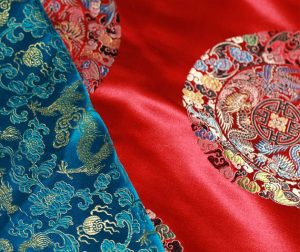
It may be interesting to know, Parachutes and bicycle tires are both made of woven silk threads. Prosthetic arteries are created using silk strands that go through a unique manufacturing procedure. Many silk threads are used to create ink canvases, and silk is often used for burns and wounds in the medical industry due to its antibacterial characteristics.
You should know silk may be blended with other fibers. Silk fabrics are more stable, stain-resistant, sun- and water-resistant thanks to synthetic fibers. So when you want to have a wholesale purchase you have to make sure of the purity of the product.
100% silk fabric
The picture of 100% silk fabric that most people have in their mind has a smooth backside and a glossy satin fabric on the front side of the garment. Because of its excellent quality and durability, eye-catching, beauty, and softness, the fashion industry considers silk fabric to be one of the most significant and precious materials. Silk fabric is also regarded to be one of the most expensive fabrics.
We’ll list a few of the numerous indicators that might help you differentiate100%silk from synthetic.
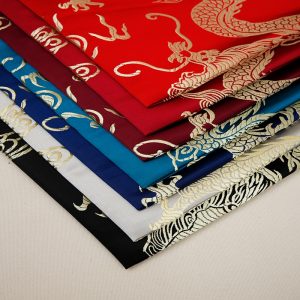
- Burning cloth may help find the solution fast. So that you remove a thread from the cloth and make sure it’s the weft. Burn the thread with a lighter or match. Natural silk burns slowly and goes to powder, thus a thread that forms a ball when burned. It also burns like hair, whereas manufactured silk burns like paper.
- A silk cloth may fit through a tiny ring, such as a wedding band. Real silk readily slides through the ring; synthetic silk slides through with a bit more effort.
- The cloth may also be touched to determine whether it is original silk. Synthetic silk cannot produce heat when touched, which causes the palm to get warm.
Cotton fibers are added to silk fibers in sportswear to boost strength and stain resistance. This technique also extends the lifespan of furnishing textiles, and it makes it much simpler to maintain silk fabrics that include both silk and synthetic fibers.
100% silk fabric wholesale
100% silk fabric has always been a luxurious fabric that is traded wholesale. But have ever heard about the simple and traditional method of manufacturing 100%silk fabric?
- Silkworms are Chinese natural insects. Since the discovery of silk a few centuries ago, the silkworm has disappeared from nature. After emerging from its cocoon, it mates swiftly and perishes after a day of producing eggs. Silkworm eggs are raised by farmers in bamboo baskets. Every few days, they clean and feed the worms, and once they are large enough, they stop eating and begin to weave cocoons.
- Every cocoon has several braided silk strands when the young, delicate cocoons are ready to be collected. The cocoons are immersed in boiling water during the raising of silkworms until the worm within dies, at which point the thread is separated from the cocoons using a particular tool. This prevents harm to the connection of the threads. These actions lead to the creation of a very strong, exceedingly long thread. The elegance remains unchanged.
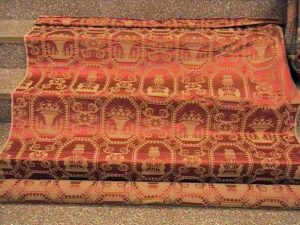
3. In the past, silk was dyed using natural resources like the hues of flowers and plants. To get the desired color, yarn was soaked in a heated solution of plant leaves, and the colors had to be set (it is said that the root of the germinating plant is a stabilizing agent).
- The conventional spinning wheel is still used for a variety of applications even today, despite the development of several spinning processes. The spools of colored silk are wound on the spool and unwound using spinning wheels.
- In the conventional technique, the silk thread spools are mounted on a standing board, and when the threads are finely adjusted, the silk fabric is woven. There is a specific process for weaving silk cloth, which we won’t go into here.
100% silk fabric by the yard
There are different ways to measure 100% silk fabric. Measuring by the yard is one way. Bolts of fabric are the most common kind of fabric offered. In this case, the material is wrapped around a cardboard tube, which is then unfolded to be measured. Weave width is measured from one end of a bolt to the other, starting at the selvage.
Even if you are already used to working with imperial units, the tape measure you use may not have yards printed on it. To accurately measure a yard, first convert it to inches using a calculator, and then use a measuring tape to determine the appropriate width for the cloth.
Always keep in mind that there are 36 inches in one yard. To calculate the yardage of your fabric, multiply 36 by the number of yards called for in the design. For instance, if the pattern asks for 2 yards of fabric, you would multiply 36 by 2.
There is also the option to convert feet to yards. What is the equivalent of feet to a yard? A yard is equal to three feet. It could also be useful to know that one foot is equivalent to thirty-two inches.
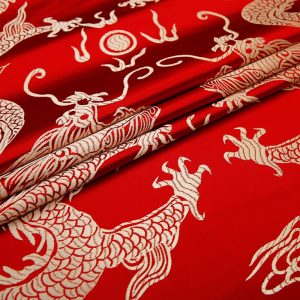
How many yards are required?
To determine how much fabric your pattern requires, you first need to know how big a yard of fabric is. This can be calculated mathematically using the required length, width, and the number of pieces:
Record your fabric’s width and the width of a single piece in your notes. The width of the fabric is equal to the width of the piece. Using this information, you can determine how many pieces of your fabric will fit in its width. Allow yourself some slack. In order to get the correct number of pieces, divide the number of pieces needed by the width (calculated above).
This tells you how many rows you’ll need to get the total amount of fabric needed, multiply this number by the length of one piece In order to figure out how many yards of fabric you’ll need, multiply this number by 36 inches (rounding up to ensure you have enough).
100 percent silk fabric
100 percent silk fabric comes from silk moth cocoons. Farmers carefully raise butterflies. A silkworm egg hatches into a silkworm, pupa, and butterfly. The silkworm secretes a protein-like material via its head to produce the cocoon. Some silkworms are allowed to become moths to spread the species, but most are harvested to make silk. Cocoons from wild silkworms are less prevalent.
We all know that 100 percent silk fabric is the best material. But have you ever thought about its history?
The Chinese were the ones who first discovered silk and began cultivating cocoons for its production. In the beginning, only members of the imperial court were allowed to practice the craft of silk cloth weaving.
However, over time, the art expanded across China and became renowned in all strata of Chinese society. Silk Road was the name given to a commercial route that eventually developed into the west. A difficult journey that started in China and finished in the marketplaces of the Middle East, which are located thousands of kilometers distant from China.
Silk manufacture was a closely guarded secret in China for hundreds of years, and no silkworms were allowed to leave the country under any circumstances.
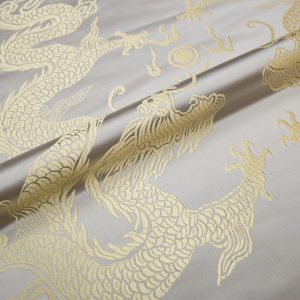
Around the year 140 BC, silkworm eggs and cuttings from mulberry trees, which the silkworm feeds on, made their way to Khotan, which is located in what is now Afghanistan.
It is reported that silkworm eggs were smuggled into that country by a Chinese princess who traveled there to marry the monarch. At the same time, they were transferred to India, and then one hundred years later, they were brought to Korea and Japan.
Nowadays still silkworms are responsible for producing silk thread. Silkworms wrap themselves in a cocoon that they weave around themselves; the larger the silkworm, the larger the cocoon. The female silkworm will deposit around 500 eggs on the leaves of the mulberry tree sometime in the early summer.
Silkworm larvae emerge from the eggs after a 10-day incubation period. Because the silkworm larvae cannot survive if even one of them becomes unwell, special attention and care must be paid to each of them. The leaves of the mulberry tree provide the food source for the silkworms that grow on those leaves.
100 silk fabric UK
100 silk fabric has a long history in the UK. Fullers (finishers) and dyers from Flanders had a significant impact on the English textile industry throughout the 13th and 14th centuries. The majority of English textiles were made of linen and wool.
Silk was first woven in London and Norway in the year 1455. In 1564, Queen Elizabeth I of England authorized Dutch and Flemish immigrants in Norway to create damask and floral silk by granting them a license to do so. The Edict of Nantes was revoked in 1685, which resulted in the continuation of the persecution of French Protestants.
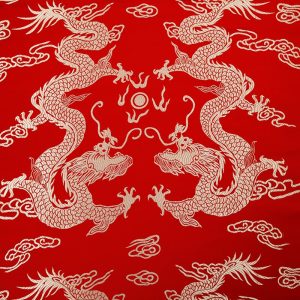
As a result, many weavers fled to England and settled in the cities of Norway, Braintree, and London. Spitalfields, a neighborhood in London that was once a major center for the manufacture of silk rugs and silk fabrics, was home to the most significant group of displaced people, which consisted of approximately 3,500 individuals.
These weavers were recognized for their careful use of exotic weaves and textures in the silk garments they are woven, which contributed to the exceptional quality of the fabrics they created. In addition to this, Norway was well-known for its patterned shawls made of silk or wool.
100 pure silk fabric is still a popular industry in London. You can find a lot of people who are involved in this industry in the UK and also throughout the world.
We have been always proud of providing our customers with 100% silk fabric. They have always been satisfied with the price and services in terms of delivery. So if you are a sort of ones who are looking for pure silk fabric just give our company a try and then stay with us for a long period.

